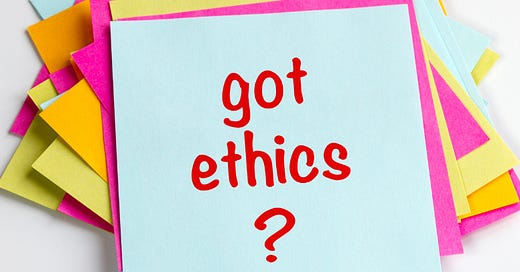It’s been thirty years since I donned my cap and gown to proudly receive my freshly inked MSW degree. At the time, I was inspired and ready to practice ethical social work with whomever might need my help. It is disheartening that a profession I held in such high esteem has sunk so low.
On January 9, 2025 the International Federation of Social Workers (IFSW) voted to, 'censure' the Israeli Union of Social Workers for allegedly, "not working to promote peace." This is not surprising since IFSW is an active partner and advisor to multiple United Nations agencies.
What is disconcerting to many of us is the lack of any kind of public outcry by IFSW's North American contingent, the National Association of Social Workers (NASW) and the Canadian Association of Social Workers (CASW).
The IFSW censure is being used by Antisemitic/anti-Zionist social workers as a way to vilify their Israeli and Jewish colleagues. New and/or younger social workers who hear nothing about the Jewish experience or antisemitism in graduate school programs take IFSWs public rebuke at face value. After all, it just confirms what they are already learning.
Recently, my colleagues and I submitted a detailed letter and petition that garnered almost 4,000 signatures to NASW and CASW whereby we stated that the IFSW’s censure itself does not comply with the fundamental ethical principles of our profession, including the NASW Code of Ethics and CASW’s commitment to dignity, inclusion, and social justice.
We also relayed that by not speaking out publicly, NASW and CASW appear to tacitly approve of the active targeting of Israeli social workers, ignoring Israel’s security realities, and unfairly singling out professionals based on nationality, ethnicity and religion.
A core social work value is social justice. As defined by the NASW Code of Ethics, social justice consists of advocating for the rights, needs, and dignity of all people, especially the marginalized.
A noble pursuit to be sure, except that because equity, anti-oppression, diversity, and inclusion is seen through a decolonization lens it posits Jews and Israelis as ‘oppressors’ and ‘colonizers.’ This is an inversion of the truth.
In actuality, Jews can’t and don’t fit into a binary model of race. They are an ancient people so they predate such a concept altogether. Because Jews are indigenous to the land of Israel they are exceptionally miscast in this narrative.
Ryan Bellerose, a Métis from the Paddle Prairie Metis settlement in Alberta, Canada and an indigenous activist answers the question in ‘Are Jews Indigenous to the Land of Israel? “I’m inclined to answer not only with my heart but with the brutal, honest truth, backed by indisputable, thousands-year-old historical and archaeological fact: yes.”
Let’s consider the Person-in-the-Environment (PIE) perspective, a foundational framework all social workers learn about in grad school that, “emphasizes the importance of understanding an individual’s life experiences alongside their current context to provide more effective support among other factors.”
To exclude Jews from anti-oppressive frameworks is to contradict the core of person-in-environment thinking. It signals that some environments and some traumas are less worthy of acknowledgment.
True anti-oppressive practice, grounded in PIE and other important values, must adapt (another core professional competency) to include Jewish experiences acknowledging both historical oppression and the ways antisemitism has shape shifted in these modern times.
If we can effect this kind of change, NASW and CASW would hopefully be moved to speak out against performative gestures like this ‘censure.’ Unfortunately, our efforts thus far have not yet compelled them to do anything.
Instead, NASW and CASW have responded with excuses; they won’t even schedule a meeting with us. They have no plans to take a public stand against IFSW’s ‘censure.’ It appears these representatives of the social work profession are not following or engaging in their own ethical practice.
It’s no wonder that my Jewish and Israeli colleagues and Jewish and Israeli clients feel abandoned and effectively erased. Those in charge do not abide by even our most basic core social work values.
In Judaism, social justice is brought to bear and is restorative; it is often tied to repentance, repair and reconciliation. It recognizes individual moral responsibility and systemic change. It must be pursued without dehumanizing others.
As Bret Stephens wrote in 2021, “One becomes a good Jew not by seeking to repair the world but by putting the commandments of personal decency ahead of the dictates of political ideology.
Clearly, those at the helm of social work do not feel the same.





Of course, Jewish social workers should have seen this coming early in their professional training. In the United States this can and should give rise to civil rights lawsuits—lots of them. But I predict it won’t.